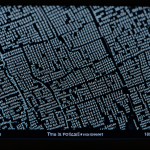Overview of Smart Contact Lens Technology
Smart contact lenses represent a groundbreaking leap in health monitoring technology, merging miniaturized electronics with the eye’s delicate surface. These lenses utilize sensors and wireless connectivity to gather real-time data, providing insights directly to users and healthcare professionals. This innovation is spearheaded by tech giants like Google, collaborating with eye-care specialists to enhance functionality and safety.
In contrast to traditional health monitoring methods—like wearable fitness trackers or glucose meters—smart contact lenses offer continuous, non-invasive monitoring. These devices can track a diverse range of health metrics, including glucose levels, ocular pressure, and more without disrupting daily activities. This elegant integration of technology into daily life highlights the smart contact lens’s unique advantage over its bulkier and more conspicuous predecessors.
Additional reading : Revolutionizing UK Manufacturing: Unleashing Operational Excellence with Digital Twins
The ongoing research in smart contact lenses is driven by a synergy between technological advances and healthcare demands. This collaboration is essential, particularly in addressing chronic conditions where real-time monitoring significantly increases response efficiency. As smart lenses evolve, their potential broaden in healthcare delivery, offering not only convenience but also transformative healthcare solutions.
Features and Benefits of Smart Contact Lenses
Smart contact lenses offer a myriad of features and health benefits, setting them apart as a notable innovation in health monitoring. These lenses are crafted with precision, incorporating real-time data collection capabilities that ensure continuous monitoring of vital signs without user intervention. This feature enables early detection and management of chronic diseases like diabetes, significantly improving patient outcomes.
Also to discover : Harnessing Precision: How Augmented Reality Revolutionizes Complex Surgeries
Moreover, the connectivity of smart lenses allows seamless data transmission to healthcare providers, facilitating quicker response times and tailored treatment plans. Such connectivity is pivotal in preventive healthcare, where timely intervention can forestall complications.
The lenses also boast unparalleled convenience and comfort compared to traditional devices like glucose meters or fitness trackers. Their non-intrusiveness enhances user compliance, as they effortlessly integrate into daily life without causing discomfort or disruption. This is especially beneficial for those who require constant monitoring but prefer a discreet solution.
In summary, smart contact lenses not only provide state-of-the-art health monitoring but also foster a more manageable and proactive approach to personal health care, emphasizing the importance of innovation in enhancing quality of life.
Applications of Smart Contact Lenses in Healthcare
Smart contact lenses hold transformative potential in healthcare innovations, particularly for managing chronic diseases. These lenses offer significant advantages in diabetes management. By continuously monitoring glucose levels, they provide real-time data that supports precise and timely adjustments in care. This capability is crucial, as quick responses can prevent serious complications associated with fluctuating glucose levels.
In preventive healthcare, smart lenses facilitate early detection of potential health issues. Their ability to monitor ocular pressure could be pivotal in identifying early signs of glaucoma, enabling intervention before symptoms worsen. This proactive approach exemplifies the lenses’ impact on enhancing patient outcomes.
Moreover, the integration of smart lenses into telemedicine represents a promising development. With their connectivity features, they support remote patient monitoring, a game-changer for individuals in remote locations or for those with mobility challenges. Real-time health data can be transmitted directly to healthcare providers, enabling timely consultations and interventions.
These applications illustrate the substantial role smart contact lenses can play in modern healthcare, offering a blend of convenience, precision, and preventive care that traditional methods struggle to match. The potential to revolutionize patient management is vast, particularly as technological enhancements continue.
Expert Opinions on Smart Contact Lens Technology
Smart lens technology insights are burgeoning with input from various experts in healthcare and technology fields. Healthcare professionals are consistently sharing promising perspectives. Many emphasize the unprecedented potential of smart contact lenses in transforming patient care, with a focus on diabetes and glaucoma monitoring. Technologists highlight the sophisticated miniaturized sensors and wireless capabilities that make these lenses a viable alternative to traditional devices.
Recent studies have shown a high degree of reliability and efficacy in data collection, reinforcing confidence in these devices. For example, experiments conducted at prestigious universities reported accuracy comparable to conventional glucose meters, coupled with increased user convenience.
Experts predict substantial advancements in the next decade, imagining more integrated systems with artificial intelligence. Such developments could refine diagnostics, enabling more personalized and proactive healthcare strategies. However, challenges like ensuring data security and managing regulatory standards are anticipated hurdles in this burgeoning field.
As advancements continue, the role of smart lenses is projected to expand significantly, not just improving patient health outcomes but also revolutionizing the healthcare landscape.
User Testimonials and Case Studies
Real-life experiences of individuals utilizing smart contact lenses provide invaluable insight into the practical applications and effectiveness of this health monitoring technology. Users often commend the convenience and unobtrusiveness of these devices in their daily lives. For instance, a case study involving diabetic patients revealed improved glucose management. The continuous monitoring enabled precise blood sugar control without frequent invasive testing, leading to higher user satisfaction and compliance.
Moreover, testimonial reviews highlight that early adopters faced initial challenges such as adapting to the new technology and ensuring compatibility with their existing healthcare routines. However, solutions like comprehensive training and user-friendly designs have significantly mitigated these issues.
Patients with glaucoma have similarly shared positive experiences, noting how real-time data on ocular pressure has empowered proactive disease management. These outcomes underscore the transformative potential of smart contact lenses in fostering health awareness and patient empowerment.
While user experiences generally reflect overall satisfaction, ongoing dialogue between users, healthcare providers, and developers is vital. This collaborative approach ensures continuous improvement of smart contact lenses, maintaining focus on user comfort and accurate health insights.
Potential Risks and Ethical Considerations
Smart contact lenses present remarkable potential in health monitoring technology but are not without risks and ethical considerations. One primary concern is the privacy of personal health data. The continuous data collection inherent in these devices raises questions about who has access to the information and how securely it is stored. Addressing these privacy concerns requires robust cybersecurity measures and transparent data handling policies.
Another issue is the possible side effects or complications that may arise from long-term use. While these lenses offer numerous health benefits, the intimate contact with the eye surface may occasionally lead to irritation or infection if not properly maintained. Manufacturers are actively working to develop biocompatible materials and enhanced sanitation guidelines to mitigate these risks.
Ethical considerations also come to play in the development and deployment of smart contact lenses. As these devices become more integrated into health care, questions around consent, data ownership, and equitable access must be addressed to ensure that advancements benefit a broad range of users without compromising ethical standards. The ongoing dialogue between technologists, healthcare professionals, and ethicists is crucial in navigating these complex issues responsibly.
Future Developments in Smart Contact Lens Technology
In the dynamic landscape of smart contact lenses, future developments promise significant advancements and wider adoption. Current research is focusing on elastomeric materials, enhancing both comfort and durability. These innovations aim to elevate the overall user experience, making lenses suitable for prolonged wear without irritation.
Experts predict a surge in market growth as technological capabilities expand. Enhanced sensor accuracy and improvements in wireless data transmission are on the horizon, allowing for more precise health monitoring. Anticipated features include integration with artificial intelligence for better predictive analytics, which could refine early diagnosis and treatment protocols.
Regulatory bodies play a critical role in shaping the future of this technology. Stricter guidelines for data privacy and safety ensure that new products meet high standards before public release. Collaboration between tech companies and governmental agencies is essential to navigate the regulatory landscape smoothly, bolstering consumer trust.
The potential for upcoming innovations in areas like augmented reality underscores the versatility of smart contact lenses beyond traditional health monitoring. This forward-thinking approach positions smart contact lenses not only as a healthcare tool but as a multifunctional device, opening avenues for diverse applications.




